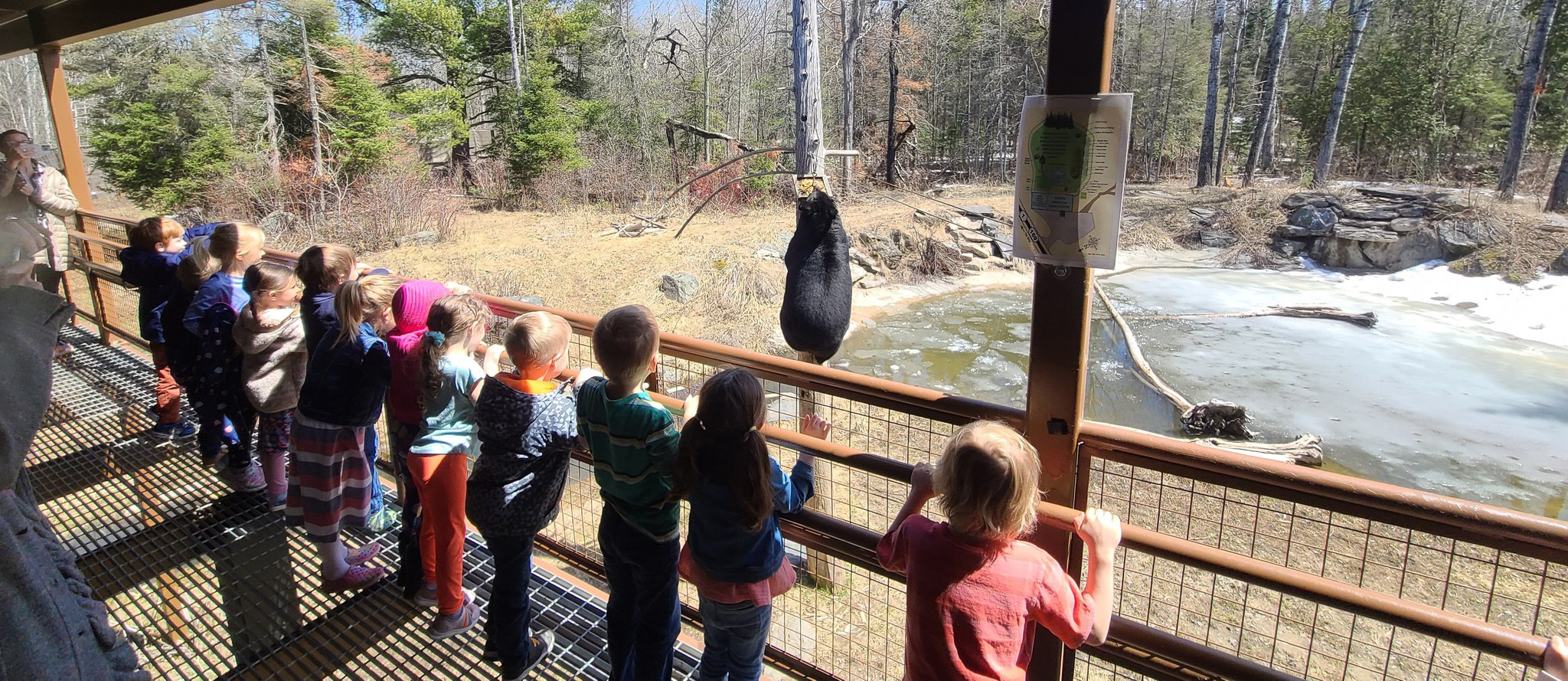

Harmless Bluster
Bear Center researchers see bluster when bears are nervous and crowded but reluctant to leave because of cubs, food, or being cornered.
The researchers usually give these bears space, out of respect, but find them easy to chase away. These researchers have never had a blustery bear come after them and make contact. Bluster is how bears talk about situations without fighting or retreating. If bluster fails, bears have retreated in every situation these researchers have seen.
Common bluster involves nervous bears that pounce toward a person or another bear, slap the ground or an object, and blow. Sometimes blowing takes on a guttural quality that sounds almost like a growl.
Less commonly, a bear rushes (bluff-charges) toward a person rather than just pouncing. In the video, a mother bear rushes toward the camera. When she gets close, she blows and clacks her jaws as she turns to retreat. Clacking the jaws is a sign of fear.
Bear Center researchers, like most people, used to think clacking (also called jaw-popping or chomping) was a threat. Then they saw a distant bear almost fall out of a tree, grab on quick, and clack its jaws. No one was around for the bear to threaten. Clacking simply meant the bear was afraid, which helped explain why “bears that clack do not attack.”
Another sound bears use in tense situations is huffing. Bears huff when tension eases, just as a person might take a deep breath after being frightened. Retreating bears often huff when they feel safe enough to stop running. Treed bears often huff when they decide it is safe to descend.
The harmless nature of all these ritualized displays is evidenced by the facts that they do not lead to attacks and that 5-pound cubs make these displays toward people they would never dream of attacking.
The video shows cubs making blustery pounces followed by adults making the same displays.
The cubs look cute and the adults look scary, but their displays are equally harmless. A bear can be blustery one second and calm the next.
Some researchers believe bluster relieves tension. Bluster does not mean a bear is getting ready to attack. As with all bear communication, bluster simply expresses the emotion of the moment.
Many people kill blustery bears because they mistakenly think bluster means the bear is aggressive and likely to attack.
We are a 501(c)(3) non-profit that relies entirely on the support of visitors, merchandise sales and people like you. We do not receive any state or federal funding.
Help support our mission.
Donate Now